Securing Your Detached Garage – Best Practices
When it comes to protecting your property, your detached garage is often overlooked. It's easy to think of it as just a place to store tools, vehicles, and other belongings, but in reality, it's a potential treasure trove for thieves. In this article, we will explore effective strategies for securing your detached garage, ensuring protection against theft and damage. By implementing these best practices, you can enhance safety and peace of mind for your property.
Understanding the weak points in your garage's security is crucial. Many homeowners fail to realize that garages can be prime targets for intruders. Common vulnerabilities include inadequate locks, unsecured windows, and poor lighting. To identify these weak points, take a stroll around your garage and ask yourself: What would a burglar see? Look for easily accessible entry points, such as windows that could be pried open or doors that lack robust locking mechanisms. By pinpointing these vulnerabilities, you can take proactive steps to fortify your garage against potential threats.
Selecting high-quality locks is essential for garage security. The right lock can be your first line of defense against unauthorized access. When evaluating locks, consider the following types:
- Deadbolts: These provide superior security compared to standard locks.
- Smart Locks: Offering keyless entry and remote monitoring, these are perfect for modern security needs.
- Standard Locks: While useful, they often fall short in terms of security.
In the next sections, we will delve deeper into the differences between these locks and how they can contribute to the overall security of your garage.
When it comes to securing your garage door, the choice between deadbolts and standard locks can make a significant difference. Deadbolts are designed to resist forced entry, providing a much stronger barrier than standard locks. In fact, many standard locks can be easily bypassed with simple tools. By investing in a high-quality deadbolt, you not only enhance your garage's security but also gain peace of mind knowing that your belongings are better protected.
In today's tech-savvy world, smart locks have emerged as a game-changer in home security. These locks offer features such as keyless entry, which means you can unlock your garage with a code or even your smartphone. Imagine being able to grant access to a friend or family member remotely! Additionally, many smart locks come with built-in alarms and monitoring systems, alerting you to any suspicious activity. This level of convenience and security is hard to beat.
Locks alone are not enough; you need to ensure that your door hardware is equally robust. Reinforced door hardware, including strike plates and hinges, can significantly improve your garage's resistance to forced entry. By reinforcing these components, you create a more secure environment that is less appealing to would-be intruders.
Windows can be an easy target for burglars, so securing them is just as important as securing your doors. Consider installing window locks, security bars, or even security film, which makes the glass more difficult to break. A well-secured window can be a deterrent for intruders, making them think twice before attempting to enter your garage.
Proper lighting and surveillance systems can deter criminal activity. A well-lit garage is less inviting for thieves, while security cameras provide an additional layer of protection. Consider installing motion sensor lights around your garage; these lights automatically turn on when they detect movement, alerting you to any suspicious activity. Furthermore, security cameras can offer real-time monitoring and serve as valuable evidence should a crime occur.
Having security cameras installed in and around your garage can be a significant deterrent to crime. These cameras not only allow you to monitor your property in real-time but also provide video evidence in case of theft or vandalism. Many modern cameras come with features like night vision and smartphone alerts, ensuring that you are always in the loop regarding your garage's security.
A secure environment around your garage is vital. Landscaping and fencing can play a crucial role in enhancing your garage's security. A well-maintained fence can act as a physical barrier, while strategic landscaping can improve visibility, making it harder for intruders to hide. Consider the following:
- Fencing Options: Explore various fencing styles that not only provide security but also complement your property’s aesthetics.
- Landscaping for Security: Use shrubs and trees wisely to enhance visibility rather than obstruct it.
Regular maintenance and timely upgrades are essential for long-term security. Just like your car needs regular servicing, your garage security measures require attention too. Make it a habit to inspect locks and hardware for wear and tear. If you notice any issues, address them immediately to ensure your garage remains secure.
Routine inspections of your locks and hardware can prevent minor issues from becoming major security risks. Look for signs of rust, wear, or any malfunctioning components. Keeping your locks in top shape is a simple yet effective way to enhance your garage's security.
Stay informed about the latest security technologies and how regular updates can enhance your garage's protection against evolving threats. Whether it’s upgrading to a more advanced locking system or installing new surveillance equipment, being proactive can make all the difference.
Q: What is the best type of lock for my garage?
A: Deadbolts are generally considered the most secure option for garage doors, especially when reinforced with high-quality hardware.
Q: How can I improve visibility around my garage?
A: Strategic landscaping and adequate lighting can significantly improve visibility, making it harder for intruders to approach unnoticed.
Q: Are smart locks worth the investment?
A: Yes! Smart locks offer convenience and enhanced security features that can provide peace of mind for homeowners.
Q: How often should I inspect my garage security?
A: It's advisable to inspect your garage security measures at least twice a year, or more frequently if you notice any signs of wear.
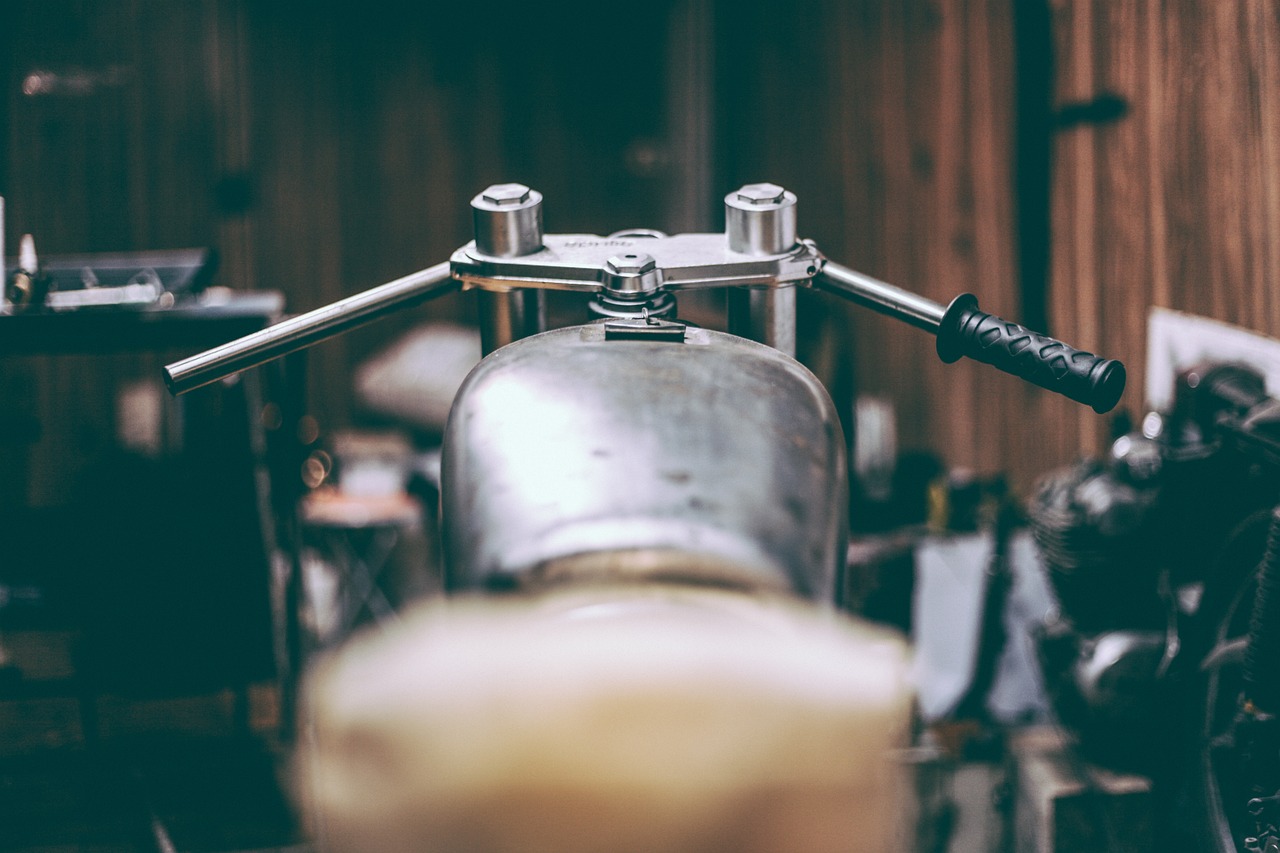
Assessing Vulnerabilities
When it comes to securing your detached garage, the first step is to understand the weak points that could be targeted by intruders. Just like a fortress, every structure has its vulnerabilities, and identifying these is crucial for fortifying your defenses. Think of your garage as a treasure chest; if the lock is rusty or the hinges are loose, it’s an open invitation for thieves. So, where do you begin?
Start by conducting a thorough vulnerability assessment. Walk around your garage and take note of any potential weaknesses. Here are some common areas to focus on:
- Doors: Are they solid and well-fitted? Check for gaps that could allow easy access.
- Windows: Are they locked and reinforced? Unsecured windows can be a quick entry point for burglars.
- Lighting: Is your garage well-lit? Dark areas can provide cover for criminal activity.
- Landscaping: Are there overgrown bushes or trees that could hide an intruder? Keeping your surroundings clear is essential.
Next, consider the location of your garage. Is it isolated or close to your home? An isolated garage may be more susceptible to break-ins, especially if it’s not visible from the street or your house. If you find that your garage is tucked away, it might be time to think about enhancing its visibility with strategic lighting or even a security camera that captures the area.
Moreover, don't underestimate the importance of technology. Modern security systems can provide invaluable insights into vulnerabilities. For instance, installing a smart security system can alert you to any unusual activity around your garage in real-time. These systems often come equipped with features such as motion sensors, which can be a game-changer in raising the alarm before a break-in occurs.
Finally, it’s important to regularly reassess your garage’s security. Just like a ship at sea, your garage's vulnerabilities can change over time due to wear and tear, new landscaping, or even changes in your neighborhood. Make it a habit to perform a security check every few months, ensuring that your protective measures are always up to date. Remember, the best defense is a proactive approach!
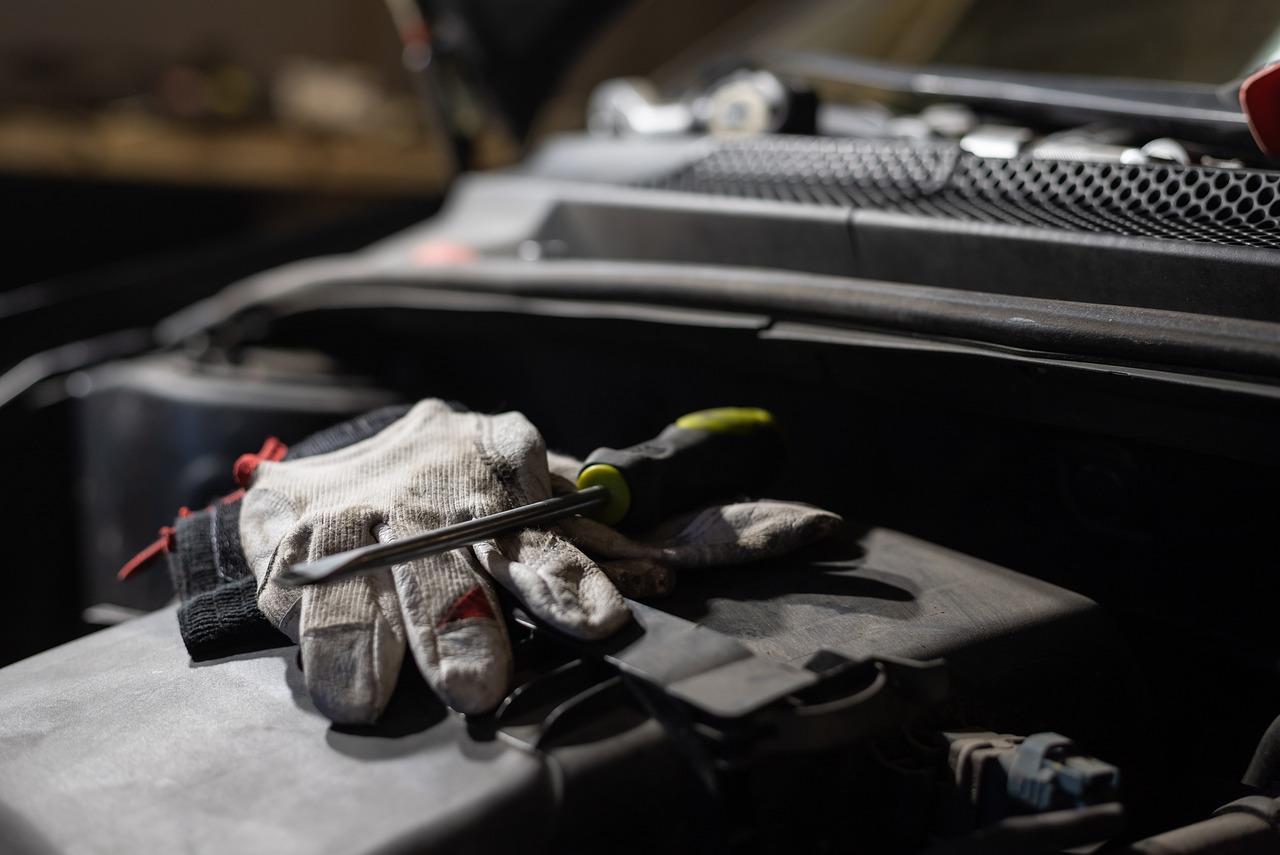
Choosing the Right Locks
When it comes to securing your detached garage, one of the most critical decisions you’ll make is choosing the right locks. Think about it: your garage often houses valuable tools, equipment, and even vehicles, making it a prime target for thieves. By selecting high-quality locks, you can significantly reduce the risk of unauthorized access. But with so many options available, how do you know which locks are best for your needs?
First and foremost, consider the different types of locks available. There are traditional locks, deadbolts, and even smart locks that offer advanced features. Each type of lock has its own strengths and weaknesses. For example, standard locks might be easier to install and use, but they often lack the security features that deadbolts provide. Deadbolts, on the other hand, are typically more robust and resistant to forced entry, making them a popular choice for garages.
Let’s dive deeper into the comparison between deadbolts and standard locks. Deadbolts work by extending a solid metal bolt into the door frame, which makes it much harder for intruders to kick in the door. In contrast, standard locks usually operate with a spring-loaded mechanism that can be easily manipulated. If you’re serious about security, deadbolts should be your go-to option. They may cost a bit more upfront, but the peace of mind they provide is worth every penny.
In today’s tech-savvy world, smart locks are becoming increasingly popular. These locks offer features such as keyless entry, remote monitoring, and even the ability to grant temporary access to friends or service personnel. Imagine being able to check if your garage door is locked from your smartphone while you’re at work! Smart locks not only enhance security but also add a layer of convenience that traditional locks simply can’t match.
It’s not just the locks that matter; the hardware surrounding your garage door plays a crucial role in your overall security. Reinforced door hardware, such as strike plates and hinges, can help prevent forced entry. A sturdy door frame combined with high-quality locks can create a formidable barrier against potential intruders. Investing in reinforced hardware is a smart move that complements your locking system.
In summary, choosing the right locks for your detached garage is a fundamental step in securing your property. By understanding the differences between lock types and investing in high-quality options, you can significantly reduce the risk of theft and gain peace of mind. Remember, the goal is to create a multi-layered security approach, combining locks, hardware, and advanced technology to keep your garage safe.
- What is the best type of lock for a garage? Deadbolts are generally considered the best option due to their strength and resistance to forced entry.
- Are smart locks worth the investment? Yes, smart locks provide convenience and advanced security features that can enhance your garage's safety.
- How often should I replace my garage locks? It's a good practice to inspect your locks annually and replace them if you notice any signs of wear and tear.

Deadbolts vs. Standard Locks
When it comes to securing your detached garage, the choice of locks can make all the difference. Deadbolts and standard locks serve the same fundamental purpose of keeping intruders out, but they do so with varying levels of effectiveness. Think of a deadbolt as the fortress of your garage security—it's robust, reliable, and designed to withstand more than just a casual attempt at forced entry. In contrast, standard locks, while functional, can be likened to a simple picket fence—pretty, but easily bypassed by a determined intruder.
To truly understand the advantages of deadbolts over standard locks, it’s essential to consider their construction and mechanism. Deadbolts are typically made from solid metal and require a key to operate, which means they can’t simply be jimmied open with a credit card or a simple tool. On the other hand, standard locks often utilize a spring mechanism that can be manipulated with relative ease. This difference in design is crucial when evaluating security for your garage.
Here’s a quick comparison of the two types of locks:
| Feature | Deadbolts | Standard Locks |
|---|---|---|
| Material | Solid metal | Varies (often lighter materials) |
| Resistance to Forced Entry | High | Low to Moderate |
| Ease of Manipulation | Low | High |
| Installation Complexity | Moderate | Easy |
As you can see, the advantages of deadbolts become quite apparent. They offer a higher level of security, making them an ideal choice for your garage. However, it's also important to consider the context in which these locks will be used. For example, using a deadbolt in conjunction with a standard lock can create a layered security approach, which is often recommended by security experts. This combination not only provides the benefits of both lock types but also increases the time and effort required for an intruder to gain access.
Moreover, when choosing a deadbolt, look for options that come with additional features such as anti-drill plates and hardened steel construction. These enhancements can further fortify your garage against break-ins. Remember, your garage is not just a storage space; it often houses valuable tools, equipment, and even vehicles. Therefore, investing in high-quality locks is not just a precaution—it's a necessity.
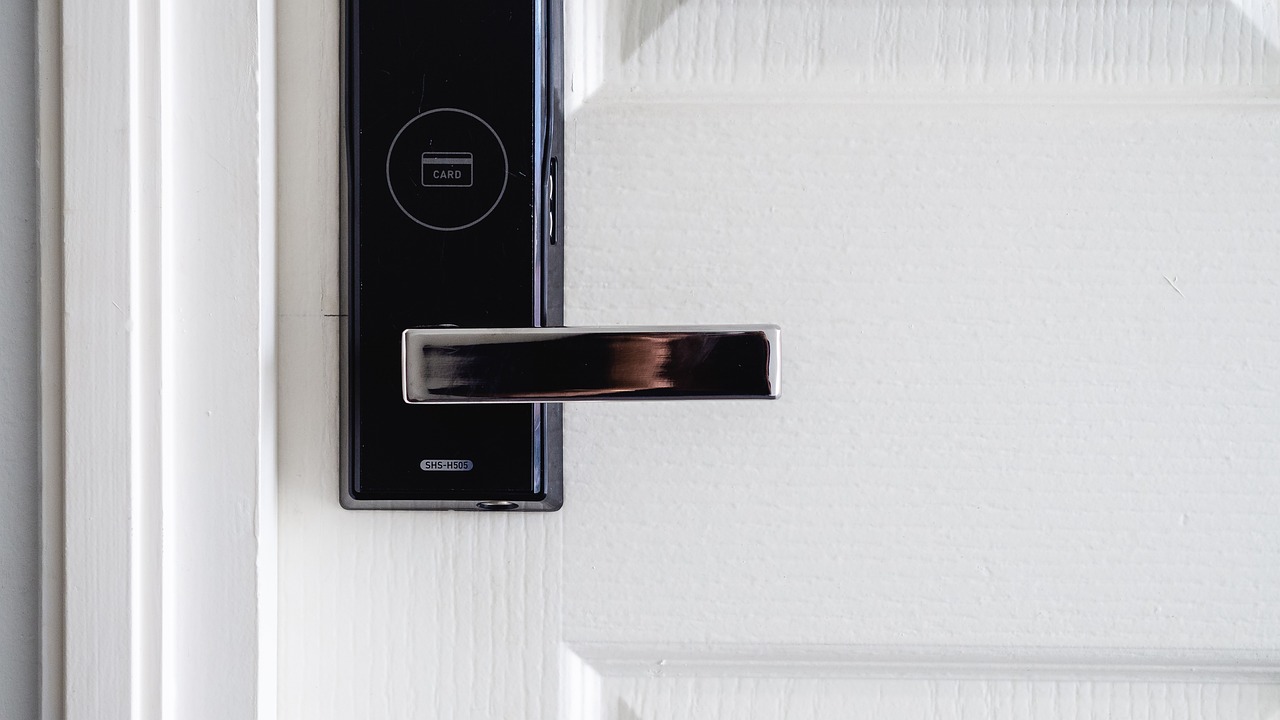
Smart Locks for Modern Security
In today's fast-paced world, security technology has evolved significantly, and one of the most revolutionary advancements is the introduction of smart locks. These innovative devices not only provide enhanced security for your detached garage but also offer unparalleled convenience that traditional locks simply can't match. Imagine being able to lock or unlock your garage door from anywhere in the world, all from your smartphone! This level of control is not just a luxury; it’s becoming a necessity in our increasingly digital lives.
Smart locks operate using various technologies, including Bluetooth, Wi-Fi, and even biometric scanning. This means you can choose a lock that fits your lifestyle. For instance, if you're someone who frequently misplaces keys, a keyless entry system might be your best bet. With options like keypad entry or fingerprint recognition, you can say goodbye to fumbling for keys in the dark!
Furthermore, many smart locks come equipped with features that allow for remote monitoring. This means you can receive alerts on your phone whenever the garage door is accessed, providing you with real-time updates on who is coming and going. This is especially useful for families, as parents can keep tabs on their children when they come home from school or when service personnel enter the garage for maintenance.
In addition to convenience, smart locks also enhance security through features like temporary access codes. Need to let a friend or a service person into your garage while you’re away? No problem! You can generate a temporary code that they can use to gain access without compromising your security. Once they’re done, simply revoke their access, and you’re back to full control.
But don't just take my word for it—let's look at a quick comparison of some popular smart lock features:
| Feature | Smart Lock A | Smart Lock B | Smart Lock C |
|---|---|---|---|
| Keyless Entry | Yes | Yes | No |
| Remote Access | Yes | No | Yes |
| Temporary Codes | Yes | Yes | No |
| Biometric Access | No | Yes | Yes |
As you can see, different smart locks offer various features to cater to your specific needs. When choosing a smart lock for your detached garage, consider what matters most to you: Do you prioritize ease of use, advanced security features, or perhaps the ability to monitor access remotely? The right choice can significantly enhance your peace of mind and the overall security of your property.
In conclusion, investing in a smart lock is not merely about keeping your garage secure; it’s about embracing a modern approach to safety. These devices blend technology with practicality, making them an excellent choice for anyone looking to upgrade their security measures. So, why not take the plunge and explore the world of smart locks? Your garage—and your peace of mind—will thank you!
Q1: What happens if the smart lock battery dies?
A1: Most smart locks have a backup key option or a low-battery alert feature. It’s a good idea to keep a spare key handy just in case!
Q2: Can I install a smart lock myself?
A2: Yes! Many smart locks are designed for easy installation and come with comprehensive instructions. However, if you’re unsure, hiring a professional might be a good idea.
Q3: Are smart locks safe from hacking?
A3: While no device is entirely hack-proof, reputable smart locks use advanced encryption to protect your data. Always choose locks from trusted brands and keep your software updated.

Reinforced Door Hardware
When it comes to securing your detached garage, plays a pivotal role in preventing unauthorized entry. Think of your garage door as the fortress gate; if the gate is weak, the fortress is vulnerable. Reinforced hardware includes items such as heavy-duty hinges, strike plates, and door frames that can withstand significant force, making it much harder for intruders to break in.
One of the most effective ways to enhance your garage door security is by upgrading to heavy-duty locks and installing reinforced strike plates. A strike plate is the metal piece that the lock's bolt slides into. By using a thicker, more durable strike plate, you provide an extra layer of defense against forced entry. These plates can be secured with longer screws that penetrate deeper into the door frame, making it exceedingly difficult for anyone to kick the door open.
Additionally, consider using door reinforcers. These are metal plates that fit over the door where the lock is located, providing extra support and making it nearly impossible for someone to pry the lock out. When combined with a robust locking mechanism, this can significantly enhance your garage’s security profile.
Another area to focus on is the hinges. Standard hinges can be easily tampered with, allowing intruders to remove the door entirely. By switching to non-removable hinges, you can prevent this type of entry altogether. These hinges are designed in such a way that the pins cannot be removed from the outside, adding yet another barrier to your garage's security.
In summary, investing in reinforced door hardware is not just about adding a few extra bolts or screws; it’s about creating a comprehensive security system that deters potential intruders. By fortifying your garage door with heavy-duty locks, reinforced strike plates, and non-removable hinges, you can sleep easier knowing that your property is well protected.
- What is reinforced door hardware?
Reinforced door hardware includes stronger locks, strike plates, and hinges designed to enhance the security of doors against forced entry. - How do I choose the right reinforced hardware?
Look for products made from durable materials like steel, and ensure they are compatible with your existing door setup. - Can I install reinforced hardware myself?
Yes, many homeowners can install reinforced hardware with basic tools, but consider hiring a professional for complex installations.

Window Security Measures
When it comes to securing your detached garage, windows often represent a vulnerable point that can be easily overlooked. Many homeowners assume that their garage is safe simply because it’s detached from their main residence, but that’s a common misconception. In reality, windows can be an easy target for burglars, especially if they are not properly secured. To ensure your garage remains a fortress against potential intruders, it’s essential to implement effective window security measures.
First and foremost, consider installing high-quality locks on all garage windows. Standard locks can be easily manipulated, so opting for more robust options like deadbolts or even window pin locks can significantly enhance security. Deadbolts provide an extra layer of protection by requiring a key or thumb turn to unlock, making them much harder to breach.
Additionally, you might want to explore the option of security bars. These can be installed on the inside of your garage windows and serve as a physical barrier against forced entry. While some may argue that security bars can make a space feel less inviting, they can be painted to match the window frames, maintaining aesthetic appeal while providing peace of mind.
Another effective solution is to apply security window film. This clear film can be applied to the glass surfaces of your windows, making them much harder to break. In fact, this film holds the glass together even when shattered, preventing easy access for intruders. This means that even if a burglar tries to break in, they’ll encounter a much more challenging barrier than they anticipated.
Furthermore, consider the importance of visibility. If your garage windows are hidden from view, they can become a prime target for criminals. Keep the area around your garage well-lit and free of overgrown shrubs or trees that could provide cover for someone attempting to break in. By landscaping strategically, you not only improve your garage's overall appearance but also deter potential intruders who prefer to operate in the shadows.
In summary, securing your garage windows is just as important as reinforcing your doors. By investing in high-quality locks, security bars, window film, and ensuring good visibility, you can significantly reduce the risk of unauthorized access. Remember, the goal is to create an environment that makes it as difficult as possible for intruders to succeed in their attempts, turning your garage into a secure sanctuary for your belongings.
- What is the best type of lock for garage windows?
The best type of lock for garage windows is a deadbolt or a window pin lock, as they provide a higher level of security compared to standard locks. - Can security bars be removed easily?
Security bars are designed to be robust and not easily removed. However, they can be taken off by someone with the right tools and knowledge, so ensure they are installed correctly. - Is security window film effective?
Yes, security window film is highly effective in preventing break-ins. It holds shattered glass together, making it much harder for intruders to gain access. - How can I improve visibility around my garage?
Maintain clear sightlines by trimming overgrown plants and installing motion-activated lights to deter potential intruders.
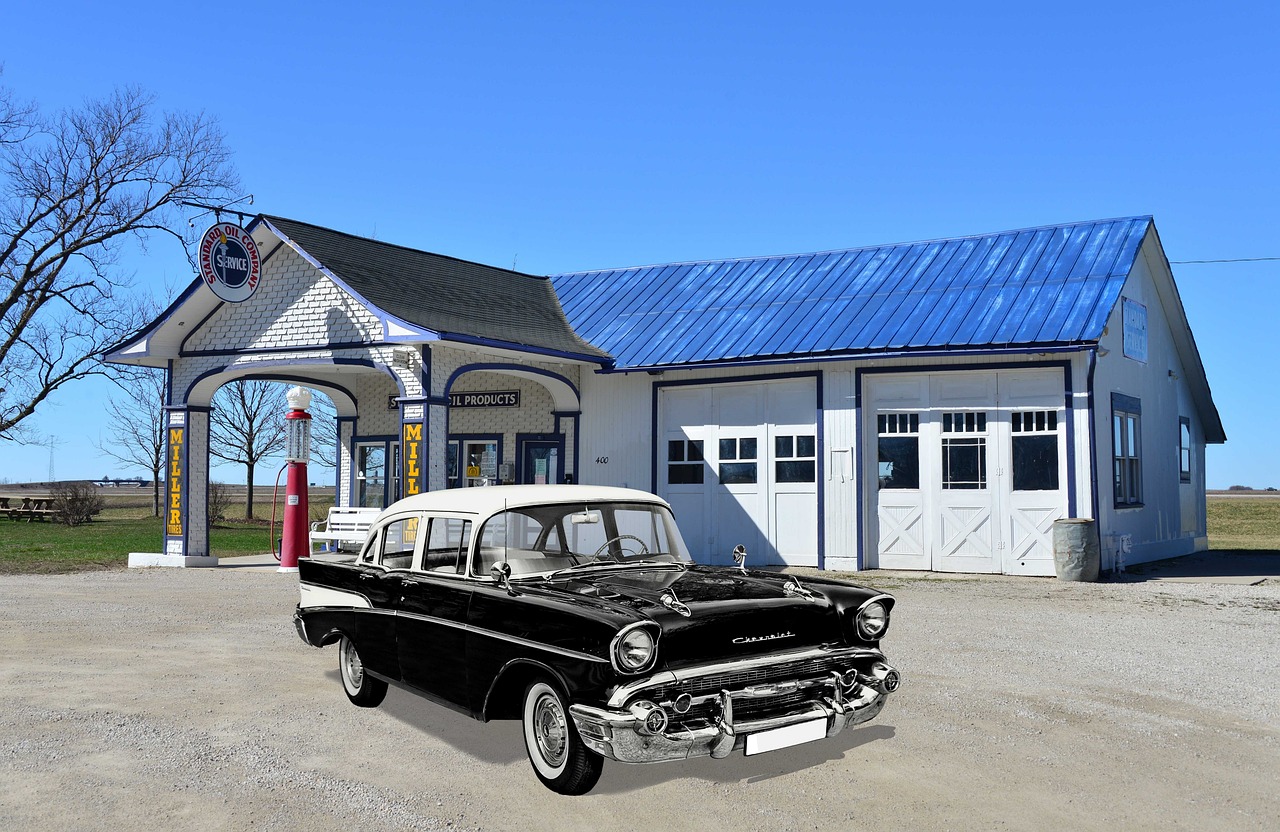
Lighting and Surveillance
When it comes to securing your detached garage, play a crucial role in deterring criminal activity. Imagine walking up to a dark, unlit garage—it's like a welcome mat for intruders. On the flip side, a well-lit area can make any potential burglar think twice. The combination of bright lights and surveillance cameras can create an environment that feels less inviting for those with ill intentions.
First off, let's talk about lighting. Proper illumination around your garage is essential. Installing motion sensor lights can be a game-changer. These lights automatically turn on when they detect movement, startling any would-be intruders and alerting you to suspicious activity. Not only do they enhance security, but they also provide convenience when you're approaching your garage at night. Imagine carrying groceries in the dark, and suddenly, the lights flick on, guiding your way effortlessly!
Next, we have surveillance systems. Security cameras are no longer just for banks or high-security areas; they are now accessible for residential use as well. With options ranging from basic models to advanced systems offering real-time monitoring and cloud storage, you can keep an eye on your garage from anywhere. Some cameras even come equipped with night vision, ensuring that your property remains monitored even in the dead of night. Plus, having visible cameras installed can act as a powerful deterrent, making thieves think twice before attempting to break in.
To give you a clearer idea, here’s a quick comparison of different lighting and surveillance options:
| Type | Benefits | Considerations |
|---|---|---|
| Motion Sensor Lights | Automatically activate, save energy, deter intruders | May require adjustment for sensitivity |
| Flood Lights | Provide bright illumination, cover large areas | Can be costly to operate if left on all night |
| Security Cameras | Real-time monitoring, evidence collection | Requires internet connection, potential privacy concerns |
In summary, integrating effective lighting and surveillance systems not only enhances the security of your detached garage but also gives you peace of mind. The brighter and more monitored your garage is, the less appealing it becomes to intruders. So, whether you're considering installing motion sensor lights or setting up a surveillance camera, remember that these investments are crucial in safeguarding your property.
- What type of lighting is best for garage security?
Motion sensor lights are highly recommended as they activate when movement is detected, providing immediate illumination and deterring potential intruders. - Are security cameras worth the investment?
Yes! Security cameras not only help in monitoring activity but also serve as a deterrent against theft and vandalism. - How can I ensure my lights and cameras are effective?
Regular maintenance and ensuring that they are positioned correctly to cover all angles of your garage can significantly enhance their effectiveness.

Motion Sensor Lights
When it comes to securing your detached garage, are a game changer. Imagine this: you're winding down for the night, and suddenly, the lights flicker on outside. That burst of illumination is not just a simple light switch; it’s a powerful deterrent against potential intruders. These lights are designed to activate when they sense movement, which means they can catch someone off guard before they even reach your garage door.
One of the best things about motion sensor lights is their energy efficiency. Unlike traditional lights that remain on all night, these smart fixtures only illuminate when needed, saving you money on your electricity bill. Plus, they come in various styles and brightness levels, allowing you to customize the lighting to suit your garage's needs. Whether you prefer a soft glow or a bright spotlight, there's a motion sensor light for you.
But how do you choose the right motion sensor lights for your garage? Here are a few factors to consider:
- Detection Range: Look for lights with a wide detection range to ensure they cover the entire area around your garage.
- Adjustable Sensitivity: Some models allow you to adjust the sensitivity of the motion detection, which can help prevent false alarms triggered by pets or passing cars.
- Weather Resistance: Since these lights will be exposed to the elements, opt for models that are weatherproof and durable.
In addition to providing security, motion sensor lights can also enhance visibility when you’re coming home late. Picture this: you pull into your driveway after a long day, and as you step out of your car, the lights flicker on, illuminating your path. This not only makes it easier to navigate but also helps you feel safer in your surroundings.
Moreover, many modern motion sensor lights can be integrated with smart home systems, allowing you to control them remotely via your smartphone. This means you can turn on the lights from anywhere, providing an extra layer of convenience and security. Imagine being on vacation and receiving a notification that motion was detected near your garage; you could activate the lights instantly to scare off any unwanted visitors.
Ultimately, installing motion sensor lights around your detached garage is a simple yet effective way to enhance your security. They serve as a visual warning to intruders, increase your peace of mind, and improve the overall safety of your property. So, if you haven’t considered adding these lights yet, now is the perfect time to make that upgrade!
1. How far can motion sensor lights detect movement?
Most motion sensor lights have a detection range between 20 to 40 feet, depending on the model. Higher-end models may offer even greater ranges.
2. Can I adjust the sensitivity of my motion sensor lights?
Yes, many motion sensor lights come with adjustable sensitivity settings, allowing you to customize how easily they respond to movement.
3. Are motion sensor lights easy to install?
Most motion sensor lights are designed for easy installation and can typically be mounted in just a few minutes, especially if you have basic electrical skills.
4. Do motion sensor lights use a lot of electricity?
No, because they only activate when they detect motion, they are much more energy-efficient than traditional lights that stay on all night.
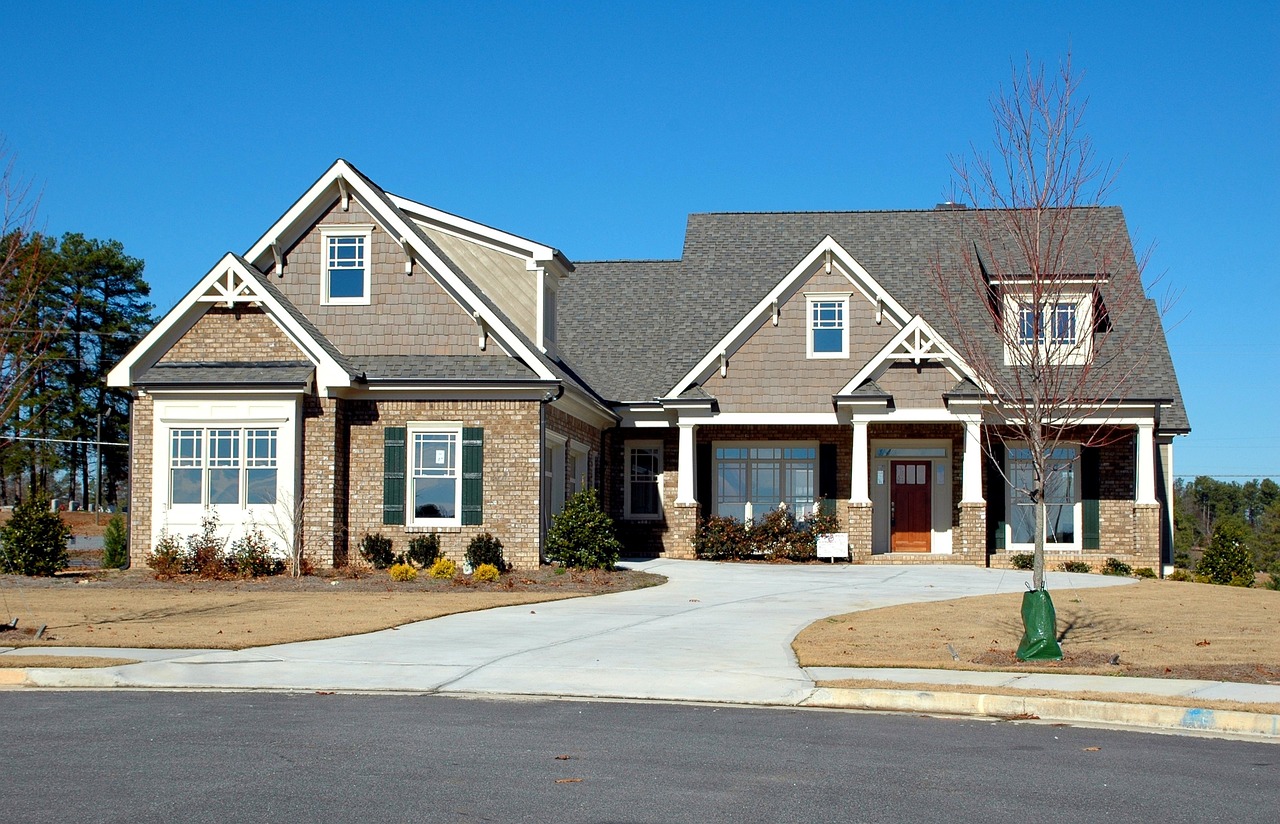
Installing Security Cameras
When it comes to securing your detached garage, can be a game-changer. Imagine having a watchful eye on your property, even when you're not around. Security cameras not only act as a deterrent against potential intruders but also provide invaluable evidence in case of an incident. With advancements in technology, modern security cameras come packed with features that enhance their effectiveness and usability.
First off, let’s talk about the types of cameras you might consider. You can choose from wired or wireless options, each with its own set of advantages. Wired cameras typically offer a more stable connection and often have higher video quality, while wireless cameras provide flexibility in placement and easier installation. The choice between the two often depends on your specific needs and the layout of your garage.
Next, resolution is another crucial factor to consider. High-definition cameras (1080p and above) provide clearer images, making it easier to identify faces or license plates. This can be particularly important if you live in an area where theft is common. Additionally, many modern cameras offer features like night vision, allowing you to monitor your garage even in low-light conditions. This can be particularly useful for those late-night trips to the garage or if you’re away on vacation.
Another feature to consider is remote access. Many security cameras now come with mobile apps that allow you to view live footage from your smartphone. This means you can check on your garage from anywhere, whether you're at work, on vacation, or just relaxing at home. Imagine being able to receive alerts directly to your phone if someone approaches your garage. This level of accessibility can provide peace of mind, knowing that you can keep an eye on your property at all times.
To give you a clearer picture, here’s a quick comparison table of some popular security camera features:
| Feature | Wired Cameras | Wireless Cameras |
|---|---|---|
| Installation | More complex, requires wiring | Simple, often plug-and-play |
| Video Quality | Usually higher resolution | Can vary, but many offer HD |
| Night Vision | Available in many models | Common feature in modern cameras |
| Remote Access | Possible, but may require additional setup | Typically included with most models |
Finally, positioning your cameras strategically is key. Place them at entry points such as doors and windows, and consider covering areas that are less visible. A well-placed camera can cover a wide area, making it harder for an intruder to find a blind spot. You might also want to consider installing signs indicating that your property is under surveillance, as this can further deter potential criminals.
In summary, installing security cameras is a proactive step you can take to secure your detached garage. With the right choice of camera, features, and positioning, you can significantly enhance the safety of your property. So, why wait? Take control of your garage’s security today!
- What type of security camera is best for a detached garage? It depends on your needs, but high-definition wireless cameras with night vision and remote access are highly recommended.
- Can I install security cameras myself? Yes, many modern cameras are designed for easy installation, especially wireless models.
- Do I need a security system for my cameras? While not necessary, integrating your cameras with a security system can enhance overall protection.
- How can I ensure my cameras are secure from tampering? Position them out of reach and consider using tamper-proof screws.

Creating a Secure Environment
When it comes to securing your detached garage, creating a secure environment is just as important as installing high-quality locks and surveillance systems. Think of your garage as a fortress; the stronger the walls and the smarter the defenses, the less appealing it becomes to potential intruders. One of the most effective ways to enhance security is through careful consideration of your surroundings. This includes your landscaping, fencing, and overall visibility. By making strategic choices, you can significantly reduce the risk of theft or vandalism.
First, let’s talk about fencing. A good fence can serve as a physical barrier, making it more difficult for intruders to access your garage. While you might be tempted to choose a fence based solely on aesthetics, it’s crucial to consider security features as well. For example, a tall, solid fence can deter most unwanted visitors, while a fence with sharp spikes or pointed tops can add an extra layer of protection. Here’s a quick comparison of common fencing options:
| Type of Fence | Security Level | Aesthetic Appeal |
|---|---|---|
| Wood Fence | Medium | High |
| Chain-Link Fence | Low | Medium |
| Vinyl Fence | Medium | High |
| Wrought Iron Fence | High | Medium |
Next, let’s discuss landscaping. Believe it or not, the way you design your garden can either enhance or compromise your garage’s security. Overgrown bushes and trees can provide cover for would-be intruders, making it easier for them to approach unnoticed. To improve visibility and deter criminal activity, consider the following landscaping tips:
- Keep shrubs and trees trimmed, especially those near windows or doors.
- Use thorny plants as natural deterrents around the perimeter of your garage.
- Opt for low-growing plants that won’t obstruct views of your garage from the street.
Additionally, installing motion-activated lights in your landscaping can further enhance security. These lights can illuminate dark areas around your garage, making it difficult for intruders to hide. Plus, the sudden burst of light can startle anyone trying to approach your property at night.
Lastly, consider the overall layout of your property. A well-lit and open environment is less appealing to thieves. If your garage is in a secluded area, think about ways to increase visibility. This could mean relocating the garage closer to your home or adding additional lighting to the path leading up to it. Remember, the goal is to make your garage a less attractive target.
- What is the best type of fence for garage security? A wrought iron fence offers high security while maintaining a decent aesthetic appeal, making it a great choice for protecting your garage.
- How can landscaping improve garage security? By keeping plants trimmed and using strategic plant placement, you can enhance visibility and deter intruders.
- Are motion-activated lights effective? Yes, they can startle intruders and illuminate dark areas, making it harder for them to approach unnoticed.
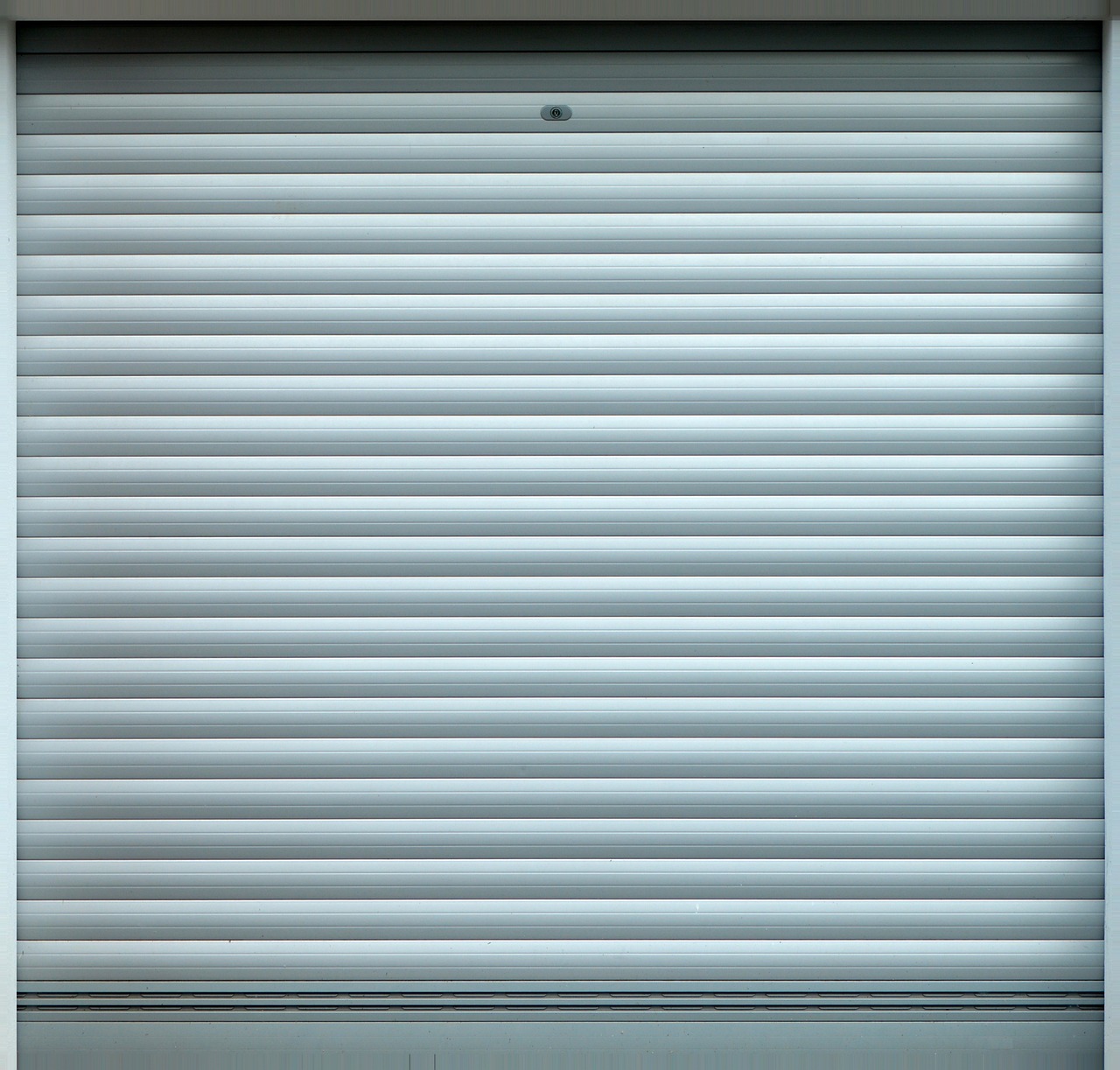
Fencing Options
When it comes to securing your detached garage, one of the most effective strategies is to invest in a robust fencing system. Fencing not only acts as a physical barrier, but it also serves as a psychological deterrent for potential intruders. Imagine your garage as a treasure chest; the right fence is the strong lid that keeps it safe from prying eyes and hands. There are various fencing options available, each with its own unique advantages and aesthetic appeal, allowing you to choose one that best fits your needs and complements your property.
One popular choice is chain-link fencing. It's affordable, durable, and provides a clear view of the surroundings, which can be beneficial for monitoring any suspicious activity. However, its transparency can also be a drawback, as it doesn’t obstruct the view of valuables inside the garage. If you're looking for something more visually appealing, consider wooden fencing. Not only does it provide excellent privacy, but it can also be customized in terms of height and style, allowing you to create a more attractive boundary for your property.
For those seeking maximum security, metal fencing options like wrought iron or aluminum are worth considering. These materials are incredibly strong and can be designed to include spikes or decorative elements that further enhance security while maintaining elegance. Additionally, installing a solid fence with minimal gaps can significantly reduce the risk of unauthorized access. You might even want to combine different types of fencing for added effect; for instance, a wooden fence topped with a chain-link barrier can offer both privacy and visibility.
Here’s a quick comparison table of popular fencing options:
| Fencing Type | Security Level | Privacy Level | Cost |
|---|---|---|---|
| Chain-Link | Medium | Low | Low |
| Wooden | High | High | Medium |
| Metal (Wrought Iron/Aluminum) | Very High | Medium | High |
When selecting the right fencing, don’t forget to consider the local regulations and homeowner association guidelines, as these can dictate the height and type of fence you can install. Additionally, proper installation is crucial; a poorly installed fence can easily be breached, rendering it ineffective. Therefore, it’s often wise to hire professionals who can ensure that your fence is both sturdy and compliant with any legal requirements.
Finally, enhancing your fencing with additional security features can take your garage protection to the next level. Think about adding security cameras that monitor the perimeter or motion-activated lights that illuminate the area when someone approaches. These features work in tandem with your fencing to create a comprehensive security system, ensuring that your detached garage remains a safe haven for your vehicles and belongings.
- What is the best type of fencing for security?
Metal fencing, particularly wrought iron or aluminum, offers the highest level of security due to its strength and durability.
- How tall should my fence be for optimal security?
A fence height of at least six feet is generally recommended to deter intruders effectively.
- Can I combine different types of fencing?
Yes! Combining different types can enhance both security and aesthetics, such as using a wooden fence with a chain-link top.
- Are there any regulations I need to consider?
Yes, always check local regulations and homeowner association guidelines regarding fence height and materials.
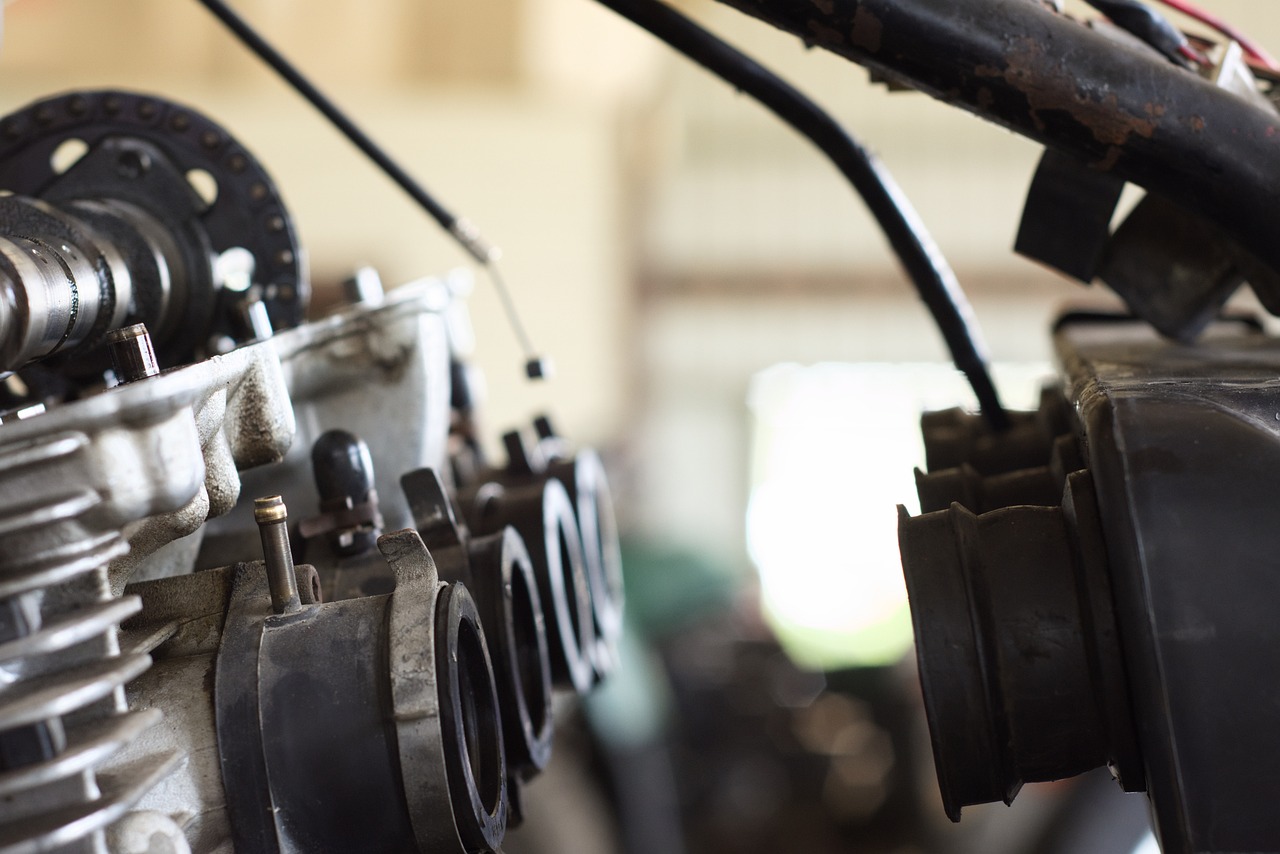
Landscaping for Security
When it comes to securing your detached garage, landscaping plays a surprisingly pivotal role. Think of your garage as a fortress; the surrounding landscape is the moat that can either keep intruders at bay or invite them in. A well-planned landscape not only enhances the aesthetic appeal of your property but also acts as a deterrent to potential burglars. By strategically placing plants, trees, and other features, you can create a more secure environment that limits the visibility of your garage and makes it harder for intruders to approach unnoticed.
One effective strategy is to use thorny bushes or dense shrubs around the perimeter of your garage. These natural barriers can discourage intruders from getting too close, as they are less likely to want to navigate through prickly plants. Additionally, consider planting low-growing shrubs that do not obstruct visibility but still provide a barrier. This way, you can maintain sightlines to your garage while making it less accessible.
Another key aspect is to ensure that any trees near your garage are properly maintained. Overhanging branches can serve as convenient access points for burglars looking to gain entry through a roof or window. Regularly trimming trees and removing any dead branches not only keeps your garage visible but also eliminates potential hiding spots for intruders. Moreover, planting deciduous trees away from the garage can help create a natural barrier while allowing sunlight to illuminate the area during the day, further deterring criminal activity.
Furthermore, consider the use of landscaping lights to enhance security. Installing motion-activated lights along pathways or near the garage can illuminate the area and alert you to any movement. This not only provides a practical security measure but also enhances the overall ambiance of your property at night. Remember, a well-lit environment is less appealing to those with malicious intent.
Lastly, be mindful of the visibility factor. Avoid placing large decorative items or tall plants that could obstruct the view of your garage from the street or your home. The more visibility you have, the less likely an intruder will feel comfortable approaching your garage. In essence, your landscaping should create an open, inviting space that discourages unwanted visitors while enhancing your property’s charm.
In summary, effective landscaping for security involves a combination of strategic plant placement, maintenance, and lighting. By creating a well-thought-out landscape design, you can significantly enhance the security of your detached garage while also beautifying your property. So, next time you think about your garage's security, don't forget to consider the powerful role that landscaping can play in your overall strategy.
- What types of plants should I use for security landscaping?
Opt for thorny bushes like holly or barberry, and dense shrubs that can deter intruders while maintaining visibility.
- How can lighting improve garage security?
Installing motion-activated lights can illuminate dark areas and alert you to any suspicious activity around your garage.
- Should I keep trees near my garage?
Maintain trees by trimming branches that overhang your garage to eliminate potential access points for intruders.
- How does visibility affect garage security?
Keeping the area around your garage clear of obstructions can deter burglars, as they prefer to operate in hidden areas.
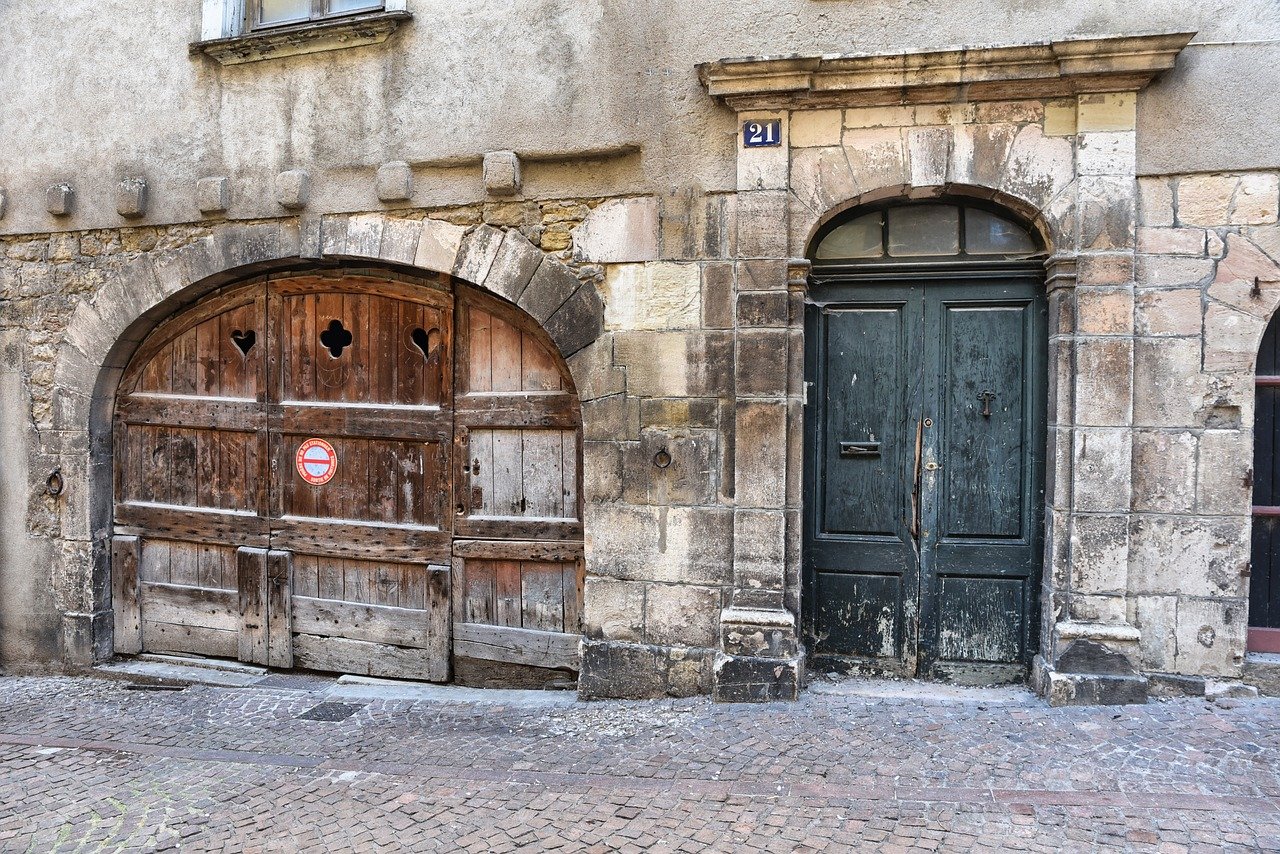
Regular Maintenance and Upgrades
When it comes to securing your detached garage, **regular maintenance** and timely upgrades are not just good practices; they are essential for long-term security. Think of your garage as a fortress; if the walls are crumbling, even the strongest gates won’t keep intruders out. Regularly inspecting and maintaining your security measures can significantly reduce the risk of theft and damage, giving you peace of mind. So, what should you be looking for?
First and foremost, it's crucial to routinely check all locks and hardware for any signs of wear and tear. Over time, locks can become rusty, keys can bend, and door hinges can squeak, indicating they need attention. A simple inspection can reveal whether your locks are functioning properly or if they need to be replaced. **Imagine** trying to secure your garage with a lock that’s more of a suggestion than a barrier! Regular checks can help you identify issues before they escalate into bigger problems.
Next, consider the **importance of updating your security technology**. Just like your smartphone needs updates to function effectively, your security measures require the same attention. New technologies emerge all the time, offering better protection and enhanced features. For instance, upgrading to a smart lock can provide you with features such as remote access, which can be a game changer for your garage security. You can lock or unlock your garage from anywhere, ensuring that you never accidentally leave it open.
Additionally, it's wise to keep an eye on the latest trends in home security. For example, incorporating smart home technology can allow you to integrate your garage security with other systems in your home. This can include alarms, lighting, and even surveillance cameras, all controlled from the same app. Not only does this provide convenience, but it also strengthens your overall security posture.
To give you a clearer picture, here’s a quick overview of what you should focus on during your regular maintenance checks:
| Maintenance Task | Frequency | Notes |
|---|---|---|
| Inspect Locks | Monthly | Check for rust or damage; replace if necessary. |
| Test Smart Lock Features | Quarterly | Ensure remote access and battery levels are optimal. |
| Examine Door Hardware | Every 6 Months | Look for signs of wear; tighten screws and hinges. |
| Update Security Software | As Needed | Keep apps and firmware current for best performance. |
Regular maintenance and timely upgrades might seem like small tasks, but they can have a **huge impact** on your garage's security. By staying proactive, you not only protect your belongings but also enhance the overall safety of your property. Remember, a well-maintained garage is a **deterrent** to potential intruders. So, roll up your sleeves and make security a priority!
- How often should I inspect my garage locks? It's recommended to inspect your locks at least once a month to ensure they are functioning properly.
- What are the benefits of smart locks? Smart locks offer convenience, remote access, and enhanced security features that traditional locks may not provide.
- How can I improve the security of my garage without spending a lot? Simple measures like regular maintenance, proper lighting, and landscaping can significantly enhance security without breaking the bank.
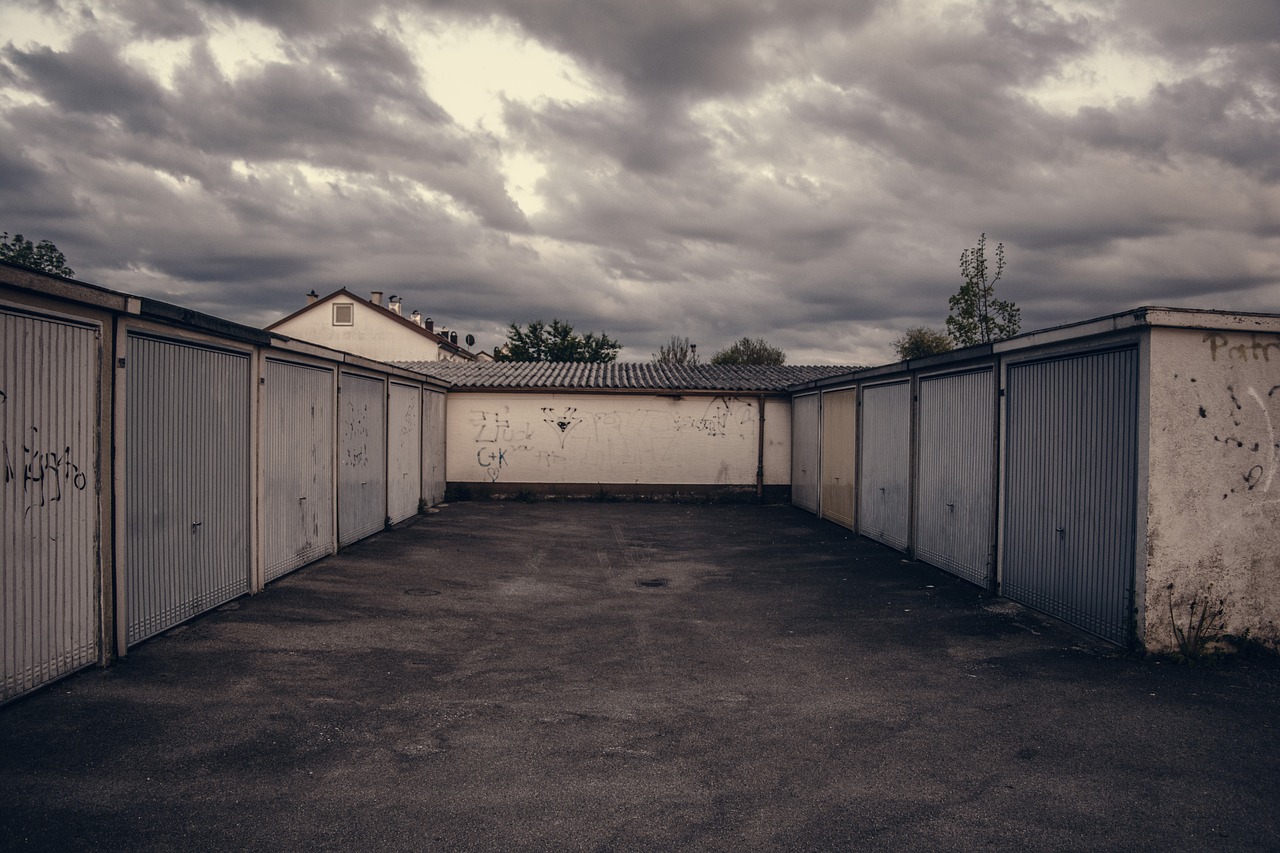
Inspecting Locks and Hardware
When it comes to securing your detached garage, regular inspection of locks and hardware is not just a good idea—it's essential. Over time, wear and tear can compromise the effectiveness of your security measures, making your garage vulnerable to unauthorized access. Think of your locks and hardware as the gatekeepers of your sanctuary; if they’re not functioning properly, you might as well be leaving the door wide open for intruders.
Start by examining your locks for any signs of rust, corrosion, or physical damage. A lock that sticks or feels loose is a clear indicator that it’s time for a replacement. Don’t forget to check the screws and bolts that secure the locks; these should be tight and intact. If you notice any that are loose, a simple tightening can make a world of difference. Consider this: a well-maintained lock is like a well-trained guard—always ready to protect your property.
Additionally, take a closer look at your door hardware, including hinges and latches. These components often go unnoticed but are crucial for the overall security of your garage. If hinges are worn or damaged, they can make it easier for someone to pry open your door. Regularly lubricating these parts can also prevent rust and ensure smooth operation. Think of it as giving your garage a little TLC; it pays off in the long run!
Here’s a quick checklist to help you during your inspection:
- Check for rust or corrosion on locks and hardware.
- Ensure all screws and bolts are tightened.
- Inspect hinges and latches for wear and tear.
- Lubricate moving parts regularly.
- Consider replacing any damaged locks or hardware.
In addition to physical inspections, it’s wise to keep an eye on the security technology you’re using. If you’ve installed smart locks or other electronic security devices, ensure they’re functioning correctly and are updated with the latest software. Just like your smartphone, security technology can become outdated, and regular updates can help fend off potential cyber threats.
Ultimately, inspecting locks and hardware is not just about preventing theft; it’s about maintaining peace of mind. By dedicating a little time to these checks, you’re taking proactive steps to protect your property and everything in it. Remember, a secure garage is a happy garage!
Q: How often should I inspect my garage locks and hardware?
A: It's recommended to inspect your locks and hardware at least twice a year, but if you notice any signs of wear or damage, do it sooner.
Q: What should I do if I find a damaged lock?
A: If you find a damaged lock, it’s best to replace it immediately to ensure your garage remains secure.
Q: Can I perform maintenance on smart locks myself?
A: Yes, you can perform basic maintenance such as checking batteries and updating software, but for complex issues, consider consulting a professional.
Q: Are there any specific brands of locks you recommend?
A: Look for reputable brands known for durability and security features, such as Schlage, Kwikset, and Yale.

Updating Security Technology
In today's fast-paced world, keeping your detached garage secure goes beyond just having a sturdy lock on the door. With technology evolving at lightning speed, it’s crucial to stay ahead of potential threats by updating your security technology regularly. Think of it like upgrading your smartphone; you wouldn’t want to use an outdated model when new features can enhance your experience and safety.
One of the first steps in this process is to regularly assess the effectiveness of your current security systems. Are your cameras still providing clear images? Is your alarm system still functioning properly? Just like a car needs regular tune-ups, your security measures require routine checks to ensure they’re operating at peak performance. You wouldn’t want to be caught off guard when a potential intruder decides to test your defenses.
Additionally, you should consider the latest advancements in security technology. For instance, modern security cameras now come equipped with high-definition video, night vision, and even facial recognition capabilities. These features not only provide better surveillance but also help in identifying potential threats more effectively. Investing in these advanced systems could mean the difference between thwarting a burglary and becoming a victim.
Moreover, integrating your security systems into a cohesive smart home setup can greatly enhance your garage's protection. Imagine being able to monitor your garage from your smartphone, receiving alerts when motion is detected, or even locking your garage door remotely. This level of convenience and control is not just a luxury; it’s becoming a necessity in our increasingly connected world.
Let’s not forget about the importance of software updates. Just as you update your computer or smartphone to protect against viruses, your security systems also need regular updates to fend off vulnerabilities. Many modern security devices come with firmware that requires periodic updates to enhance security features and fix any potential bugs. Ignoring these updates is like leaving your front door wide open; it invites trouble.
In conclusion, keeping your detached garage secure is an ongoing process that demands attention and adaptation. By routinely updating your security technology and staying informed about the latest advancements, you can create a formidable barrier against potential threats. Remember, in the realm of security, being proactive is always better than being reactive. So, take the necessary steps today to ensure that your garage remains a safe haven for your belongings.
- How often should I update my security technology?
It's recommended to assess and update your security technology at least once a year or whenever you notice a potential weakness. - What are the benefits of smart locks?
Smart locks offer keyless entry, remote access, and can integrate with your home security system for enhanced monitoring. - Are security cameras worth the investment?
Absolutely! Security cameras provide real-time monitoring and can deter intruders while also serving as evidence in case of a break-in. - What should I look for in a security camera?
Look for features like high-definition video quality, night vision, motion detection, and remote access capabilities.
Frequently Asked Questions
- What are the common vulnerabilities in a detached garage?
Common vulnerabilities include weak locks, inadequate lighting, and unmonitored windows. It's essential to assess these areas to identify potential weak points that intruders might exploit.
- How do I choose the right locks for my garage?
When selecting locks, consider high-quality deadbolts over standard locks for enhanced security. Smart locks are also a great option, providing keyless entry and remote monitoring capabilities.
- What security measures can I take for garage windows?
To secure garage windows, you can install window locks, security bars, or apply security film. These measures help prevent unauthorized access and deter potential burglars.
- How important is lighting for garage security?
Lighting is crucial for deterring criminal activity. Installing motion sensor lights around your garage can alert you to suspicious activity and make your garage less appealing to intruders.
- Should I install security cameras for my detached garage?
Absolutely! Security cameras provide real-time monitoring and can help collect evidence in case of a break-in. They act as a strong deterrent for potential criminals.
- What landscaping tips can enhance my garage's security?
Strategic landscaping can improve visibility and deter criminal activity. Keep shrubs trimmed and avoid planting tall bushes near windows to eliminate hiding spots for intruders.
- How often should I inspect my garage's security measures?
It's recommended to inspect your locks and hardware at least twice a year. Regular maintenance ensures that everything is functioning properly and helps identify any necessary upgrades.
- What are the latest security technologies for garages?
Stay informed about advancements such as smart locks, alarm systems, and integrated surveillance solutions. Regular updates to your security technology can significantly enhance your garage's protection.



















